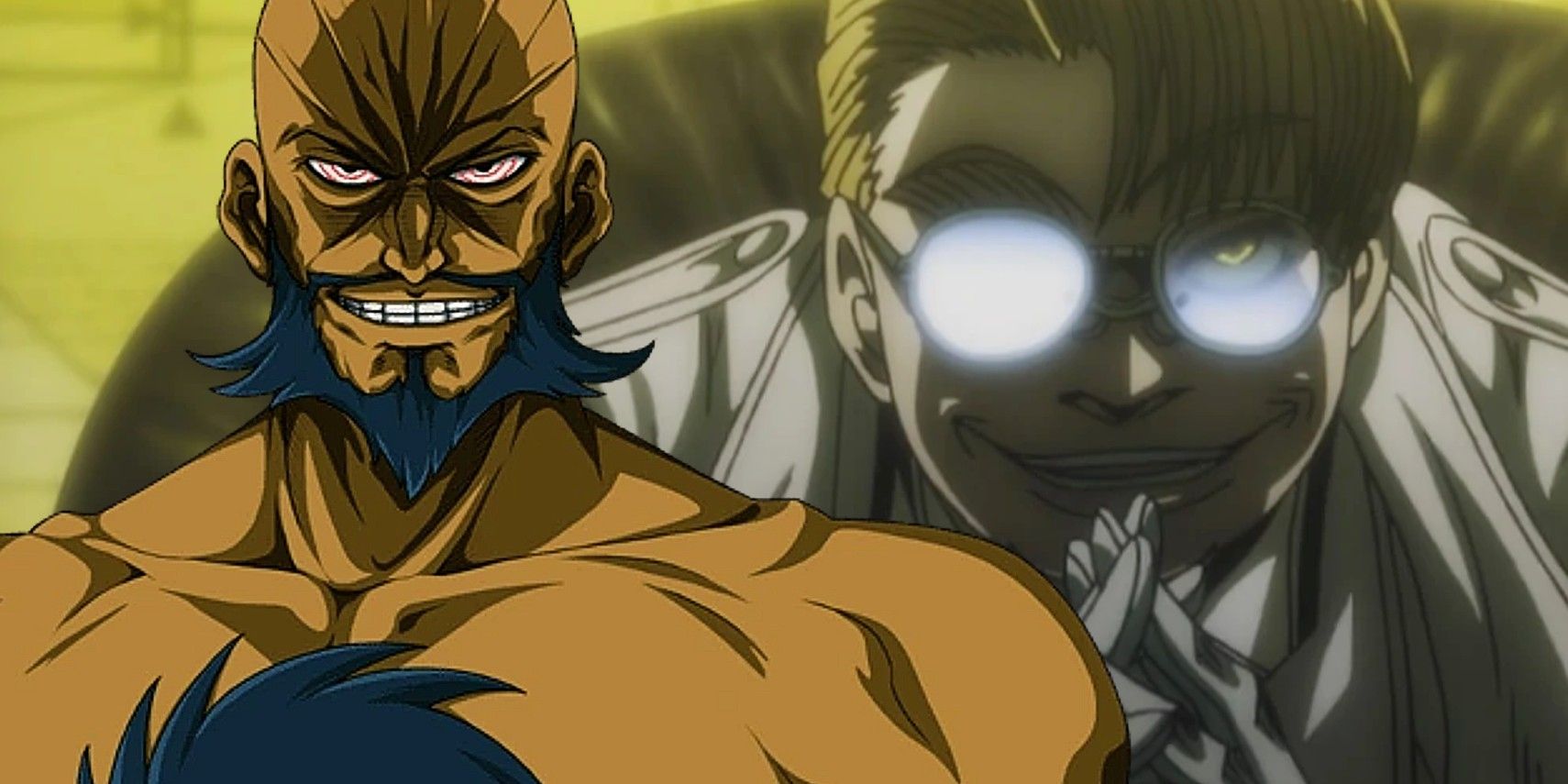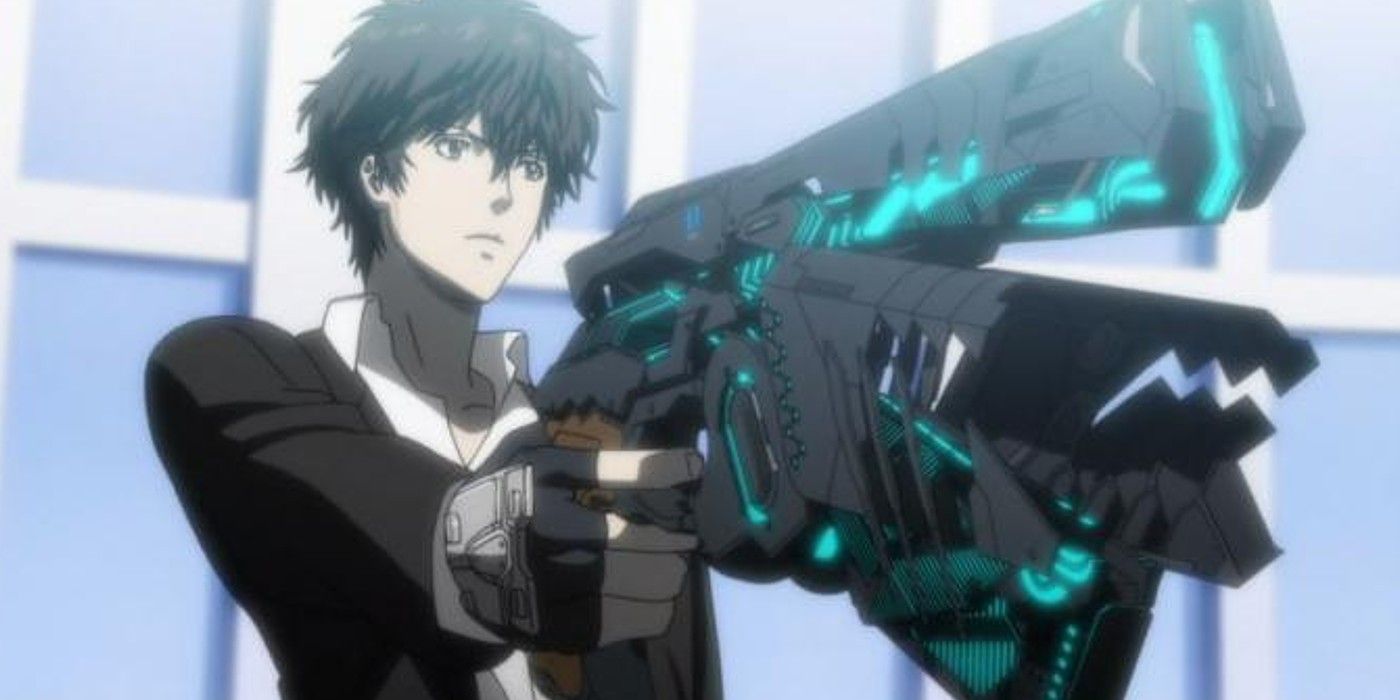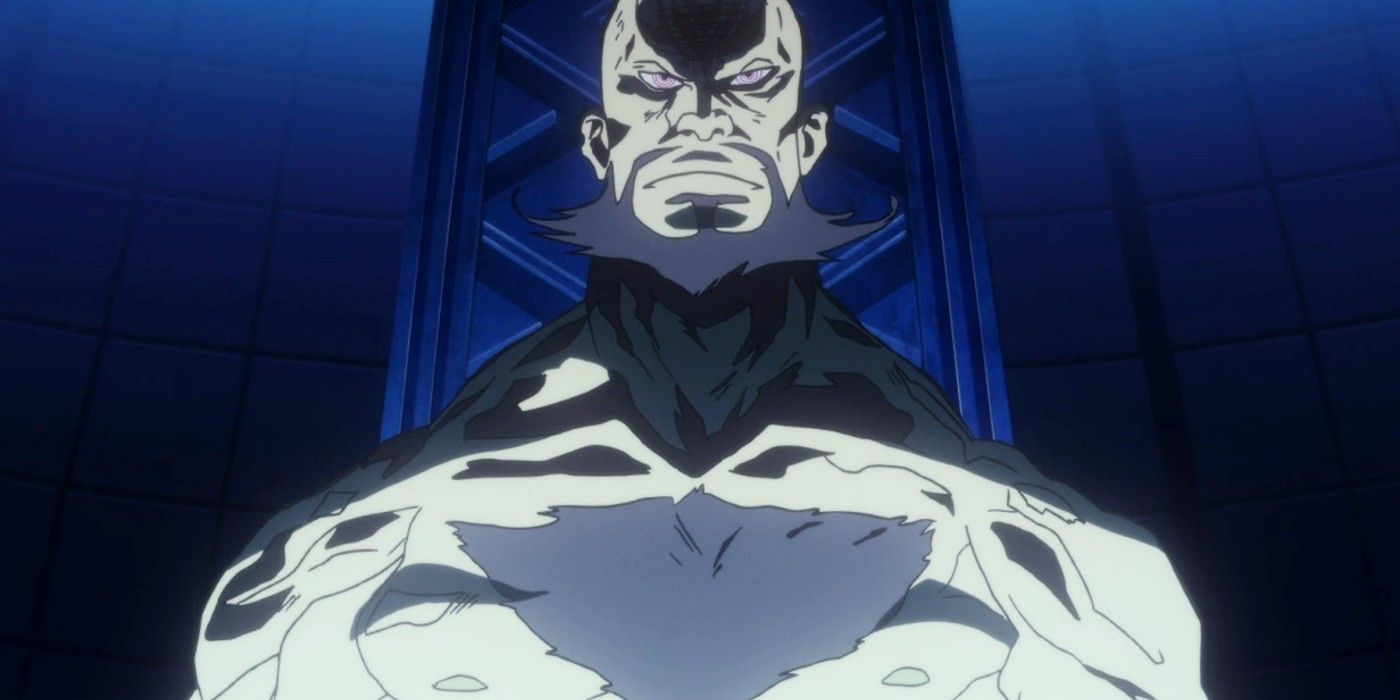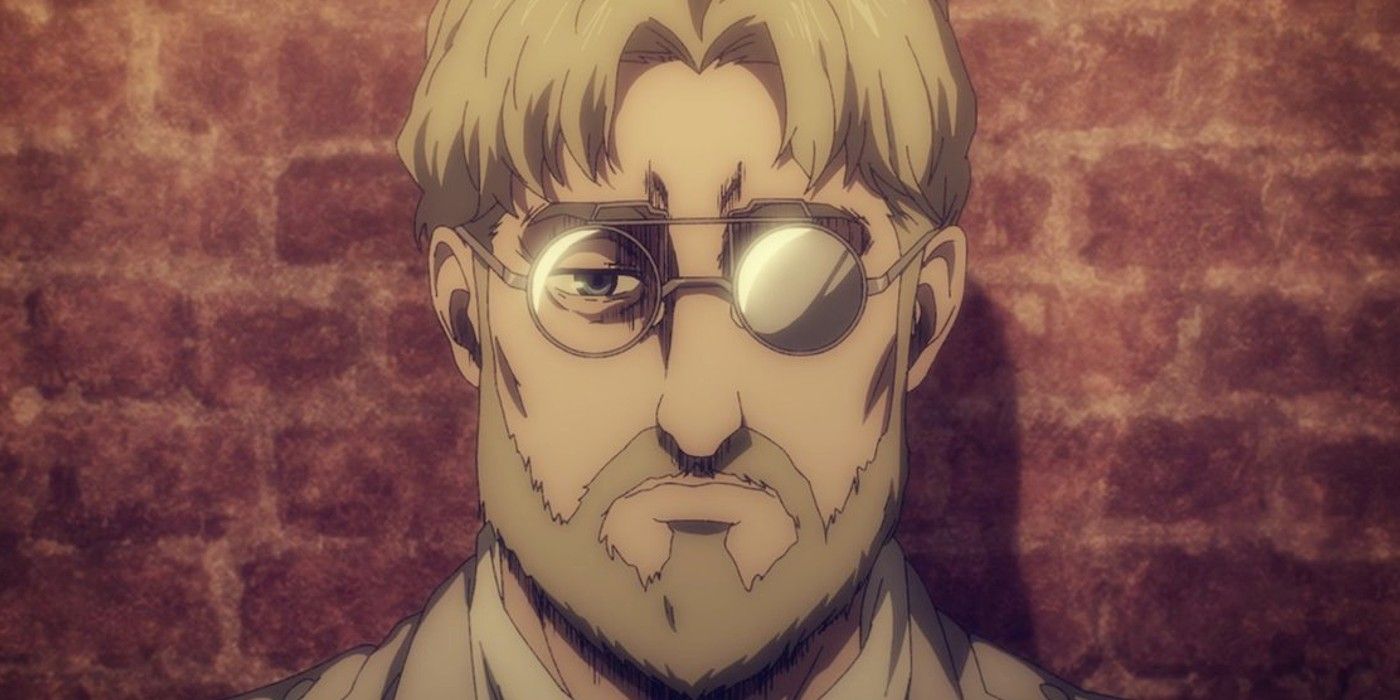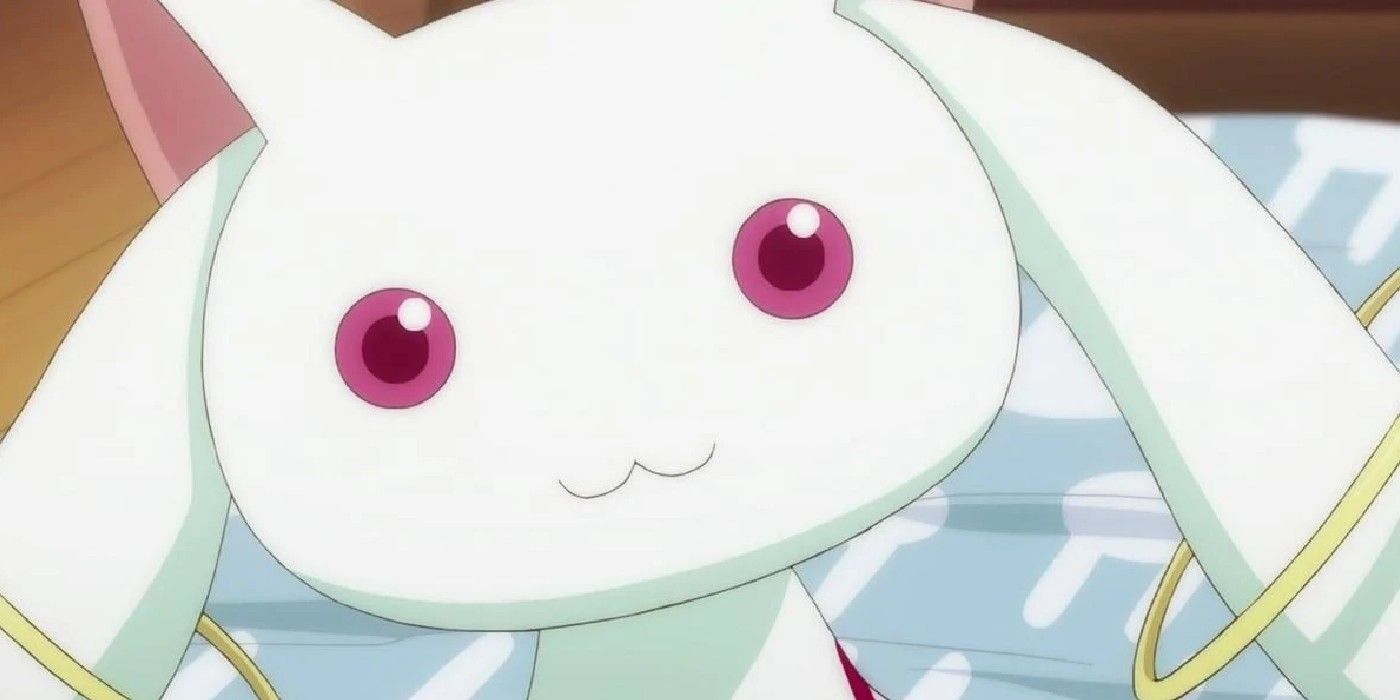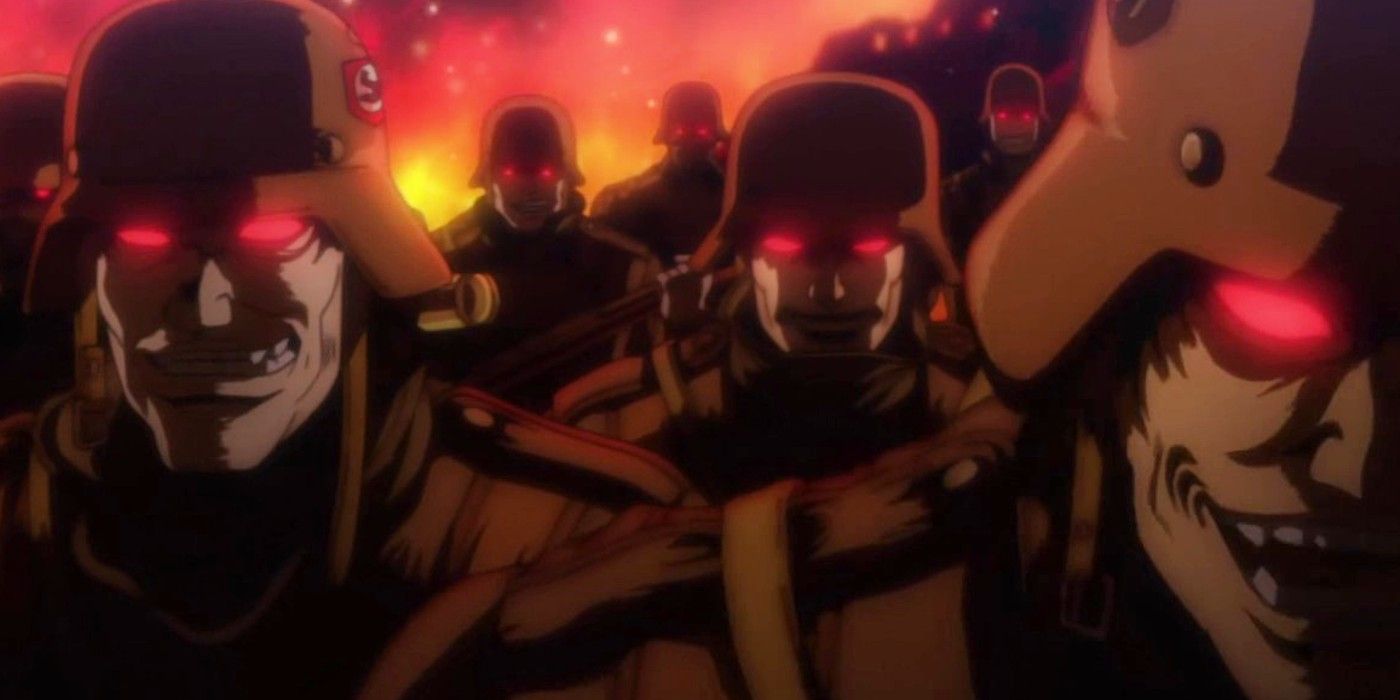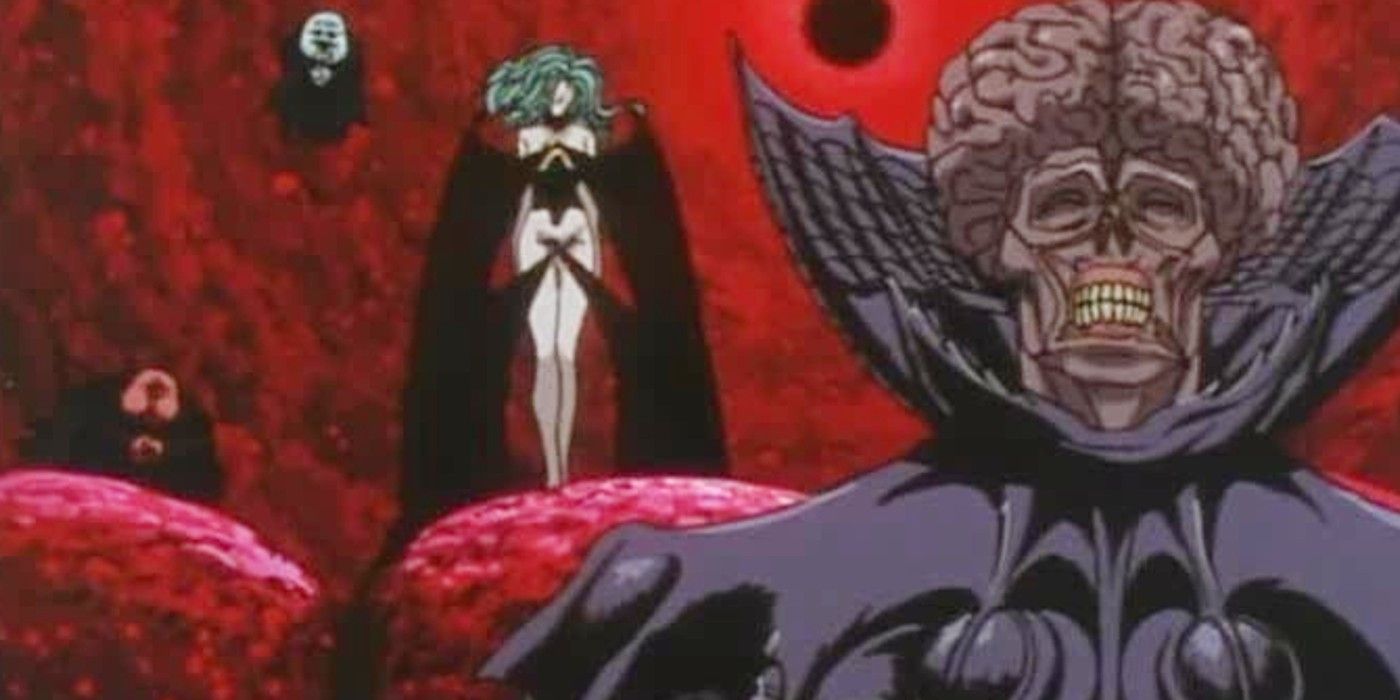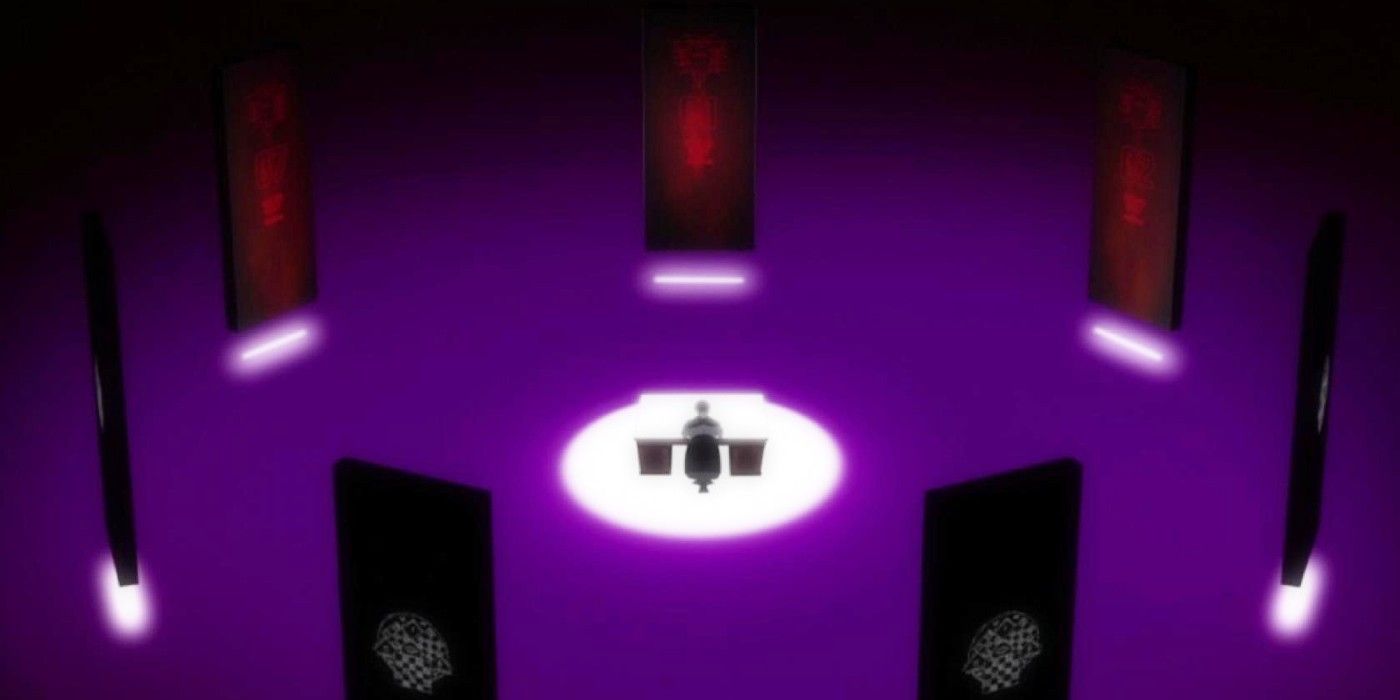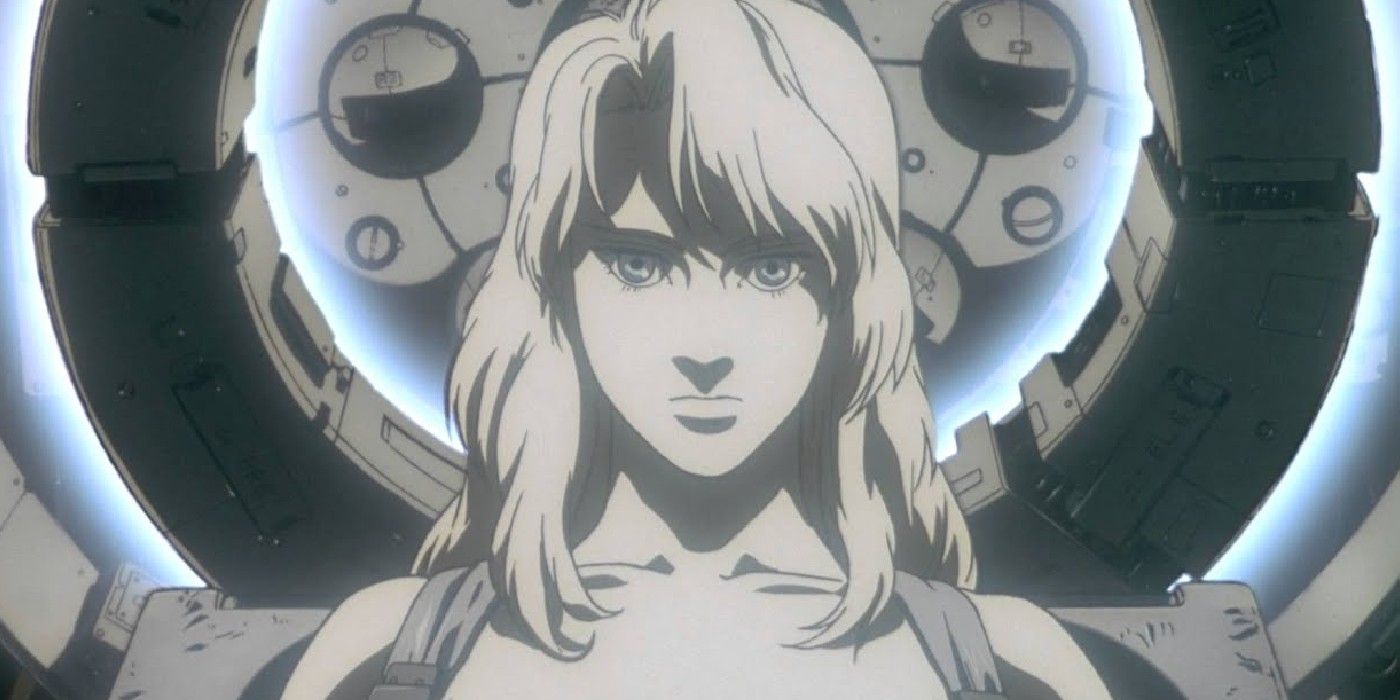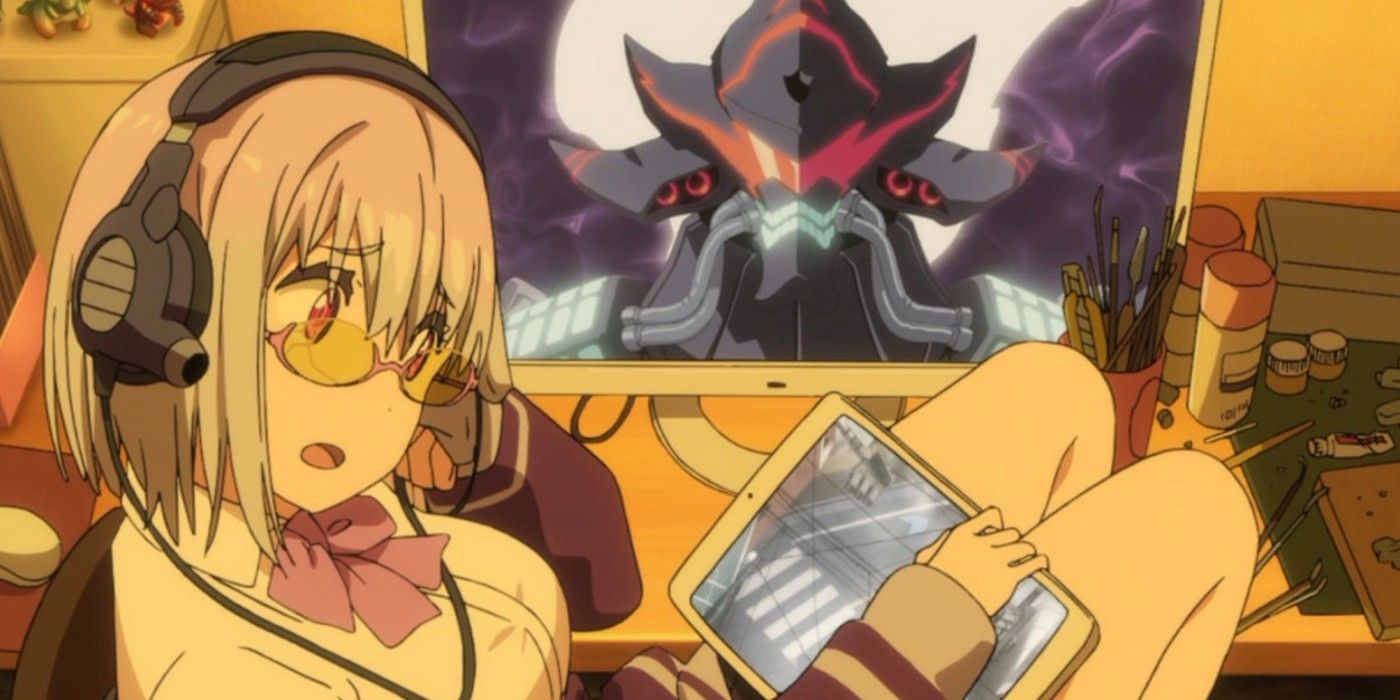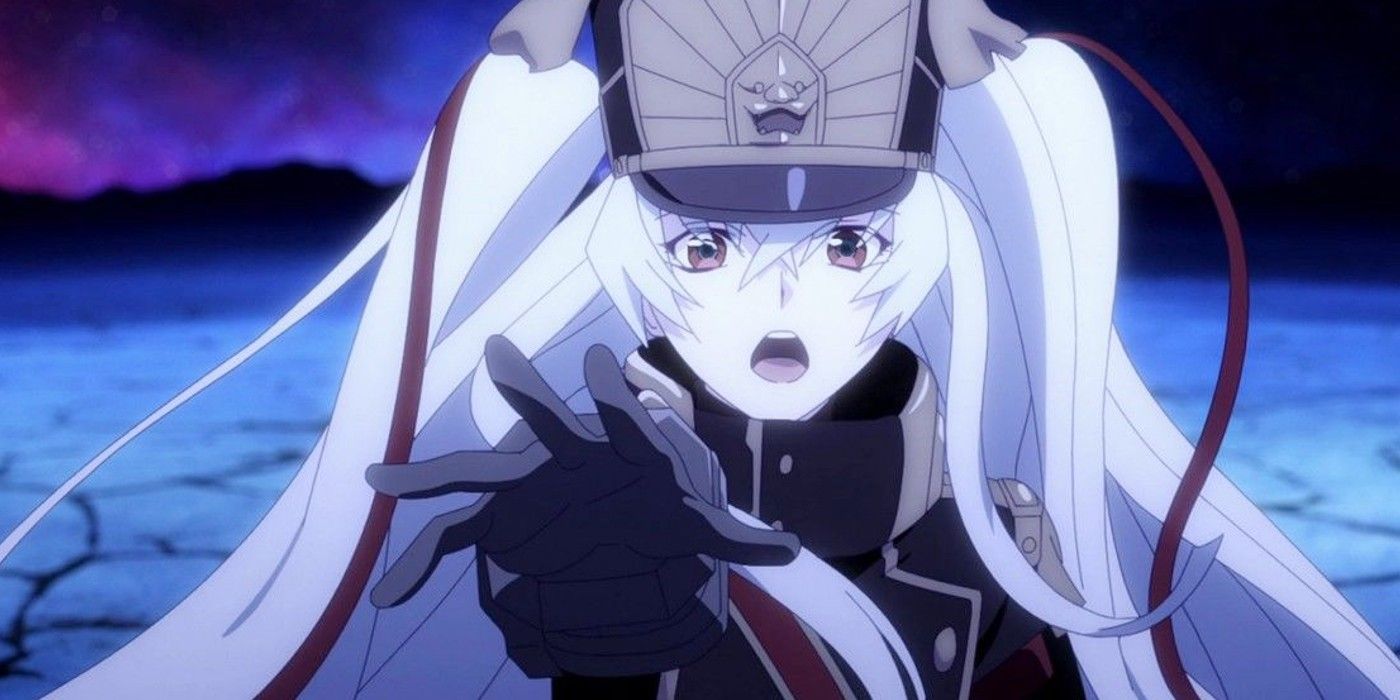More often than not, anime villains' motives overlap. If they're not trying to impose their twisted code of morals on the world, these villains are so full of themselves that they see themselves as gods.
On the other end of that familiar spectrum are unique villains with close to no competition. Some have ideals so twisted that nobody dared imitate them, and others are driven by painfully human desires that are more tragic than evil.
WARNING: Spoilers ahead.
10 Psycho-Pass — Kirito Kamui Was The Sibyl System's Judgment Made Flesh
A common theme in cyberpunk anime is that the villains already won, and are their setting's governing systems. This is the case in Psycho-Pass, which begins and ends with the privacy-ending Sibyl System in power. Psycho-Pass' second season changed the formula by, for once, forcing the power structure to directly face its sins in Kirito.
Kirito was the sole survivor of a plane crash that Sibyl orchestrated to frame another security algorithm for failures, but he's not alone. Kirito's body is comprised of the remains of the 184 victims and together, they confronted Sibyl in its chambers. While Sibyl's authority remained absolute, Kirito got it to question itself and purge half of its brains.
9 Tengen Toppa Gurren Lagann — Lordgenome Was Manipulated By A Higher Power Into Doing The "Right" Thing
At first glance, Lordgenome and his Beastmen were little more than generic shonen anime bad guys who underestimated the heroes' potential. Lordgenome was not the first villain to pontificate about how mankind should learn its place in the natural order of things, but his motive for saying so was surprisingly sensible, not arrogant.
Centuries ago, Lordgenome's will was broken by the Anti-Spiral. He was then convinced to help stop the apocalyptic Spiral Nemesis by halting mankind's evolution by forcing them underground. If they returned to the surface, the Anti-Spiral would kill them. When Lordgenome claimed his iron fist was for mankind's good and safety, he wasn't exactly lying.
8 Attack On Titan — Zeke Yeager Equates Genocide To A Mercy Kill
Anime villains who justify planned genocides with lofty ideas aren't new, but Zeke gave this familiar trend a self-loathing spin. Zeke is an Eldian, someone who inherited the ability to use the terrifying Titan's powers. Because of their ancestry as a historically evil empire, he and his fellow Eldians were hated and oppressed by the world.
Rather than seek revenge, Zeke believes that the only way to make peace with the world and save the Eldians is the Eldian Euthanasia Plot. With the Founding Titan's power, Zeke aims to sterilize all Eldians and condemn them to a slow death. Zeke's crusade is misguided, but it's informed by a sadly understandable answer to generational trauma.
7 Puella Magi Madoka Magica — The Incubators Wanted To Prevent The Universe's Heat Death
In the Easter Egg-laden Puella Magi Madoka Magica, the end of the universe and reality is inevitable; the best that anyone could do is delay it. This is where aliens known as Incubators come in, since they found a way to stall the coming Entropy. Problem is, their methods can only be powered by young girls who they trick into selling their souls.
Specifically, they turn girls into powerful Magical Girls who are doomed to die fighting Witches or become one. Either way, the Incubators get what they want by harvesting the energies that these girls' emotionally charged deaths emit. This dark twist was such a watershed that it became a cliché during the boom of deconstructive magical girl anime.
6 Hellsing Ultimate — Millennium Wanted To Die In Combat
Since it was comprised of Nazi vampires, it wasn't a reach to assume that Millennium was just another army of irredeemably sadistic monsters for the heroes (namely the selfish Alucard and the Hellsing Organization) to defeat. The truth is that there was a method to their madness, as everyone from The Major to his minions just wanted to die.
Thing is, they refused to take their own lives as Seras Victoria rhetorically asked. Millennium was a World War 2-era super-soldier program that bore its fruits too late, leaving the undying Last Battalion without their promised war. Roughly 50 years later, they fulfilled their purpose and died after they burned London into a hellish battlefield.
5 Berserk — The God Hand Is Only Interested In Manifesting Destiny
The God Hand are responsible for the worst evils in the ultraviolent Berserk, but they're anything but sadistic fantasy overlords. They only turned Guts' life into hell because it's what was fated, and doing so was all in the service of enacting their higher power's destiny. The God Hand aren't traditional villains and are really more observers.
Since they transcend space and time, the God Hand care little for petty human desires like power and revenge. Instead, they view mankind as pawns in a larger game, and it's their job to make sure that people fall in line with their destined deaths and rebirths. Unlike other fantasy overlords and evils, the God Hand's actions are driven by dutiful obligation.
4 Neon Genesis Evangelion — Gendo Ikari & SEELE Wanted To End Human Individuality
Though their personal reasons differ, NERV's manipulative director Gendo and his financiers at SEELE share a similar disdain for humanity. Such is their hatred that, instead of simply exterminating or ruling over mankind like a generic villain would, Gendo and SEELE wanted to end the very concept of humanity and people.
Through the Third Impact, Gendo and SEELE hoped to reverse human individuality by merging all souls into one consciousness. Whether or not Neon Genesis Evangelion was the first anime to have an assimilation endgame is up for debate, but Human Instrumentality was so one-of-a-kind that it influenced countless anime after it.
3 Ghost In The Shell — The Puppet Master Wanted To Transcend Their Existence
Villains in cyberpunk anime who abandoned humanity for mechanized or digital superiority are a dime a dozen, but few did so to save themselves. This is the case with the Puppet Master from the frighteningly prophetic Ghost In The Shell, who Major Motoko Kusanagi and Section 9 assumed was just another rogue Artificial Intelligence.
Instead, the Puppet Master was an AI so advanced that not only did it achieve sentience, but they questioned their own existence and developed the desire to escape the inevitable death of their physical body. Everything that they did was an act of self-defense, not a grander conspiracy, which made it easier for the Major to sympathize with them in the end.
2 SSSS.Gridman — Akane Shinjo Wanted To Maintain Her Escapist Fantasy
To be fair to her, Akane wasn't the overall villain of SSSS.Gridman - that would be Alexis Kerib. However, she helped the extra-dimensional menace terrorize Tsutsujidai City by creating kaijus at his behest and letting him kill whoever annoyed her. Akane did all this to maintain her self-destructive escapism, which came crashing down in the end.
Akane wanted to run away from reality, and Alexis enabled this by trapping her in the Computer World, where she got to live out her tokusatsu villain fantasies. Anime about using otaku culture for escapism are fairly common, but few if any used this detrimental obsession with pop culture as a villain's literal motive and means for destruction.
1 Re:Creators — Altair Wanted To Avenge Her Creator By Destroying Existence Itself
Altair being a creation wasn't a secret, but what remained to be discovered was her motive for targeting both the human and fictional worlds. Instead of generic megalomania or delusions of grandeur, the godlike Altair was driven by the human desire for love and revenge. Specifically, vengeance for her creator Setsuna Shimazaki.
Before the underrated reverse isekai Re:Creators began, Setsuna took her own life after feeling abandoned by the world. Her original character Altair then came to life and sought to avenge Setsuna by destroying all existence no matter what. Tragic villains driven by love are fairly common, but close to none are fueled by something as existential as Altair's vengeful romance.

